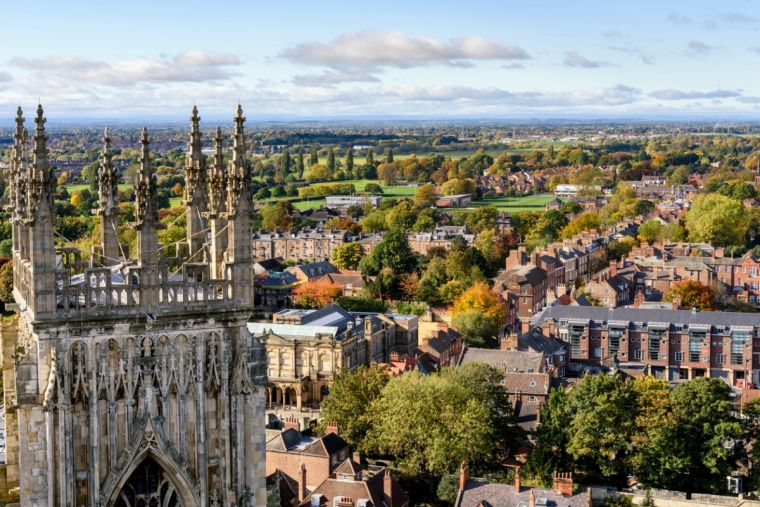'No excuses,' say Archbishops as CofE safeguarding review uncovers hundreds of new cases

The Archbishops of Canterbury and York have apologised for failings by the Church of England after an independent review revealed hundreds of new safeguarding cases that require further assessment or action.
The Past Cases Review 2 (PCR2) is the most extensive safeguarding review to date by the Church of England.
Tens of thousands of files and records going back 80 years were examined by independent reviewers across all 42 dioceses of the Church of England.
It was conducted after a previous review completed in 2007 was deemed inadequate and lacking in victim engagement.
PCR2 found 383 new cases being actively managed by CofE safeguarding leads across the country, 168 of which relate to children and 149 to vulnerable adults.
Data on the alleged perpetrators shows that 242 of the cases involve clergy, while a further 51 relate to church officers and another 41 to volunteers.
"These are cases that were identified by independent reviewers as requiring further assessment by today's safeguarding standards and, where necessary, further action," the Church of England said.
"These cover a range of cases, from those resulting in referrals to statutory authorities, to failures to carry out best practice.
"Reviewers found allegations were often dealt with informally, without appropriate investigations or records or referrals to the appropriate diocesan safeguarding professionals."
In a foreword to the review, the Archbishops of Canterbury and York expressed their "great sadness and profound shame" at the findings.
"There are no possible excuses, no rationalisations for our church's failure to share the love of God and value each and every person," they said.
"PCR2 was our next step in extending our search for the truth and being satisfied that past abuses and the misery suffered by survivors, victims and their families was uncovered.
"As a matter of priority, we took immediate action to manage concerns with procedures in place to best support the needs of the victim. This was the very least that children and vulnerable adults who have experienced such abuse deserved and was at the heart of our approach."
The Archbishops extended an apology to victims and said they were committed to making the Church of England a safe place for all.
"We sincerely apologise for our failures and want to reach out to those who are still suffering from the pain and misery they endured. We extend this apology to wider family members affected from this past abuse," they said.
"We are so sorry that this ever happened. It was not your fault and you are not to blame. We should have been better at listening and responding to survivors' and victims' concerns.
"Our faith compels us to take safeguarding with the utmost seriousness; to prevent abuse from occurring; responding appropriately where it has in support of our undertaking to making church communities and institutions safer places."
John Bakker, an independent member of the PCR2 Project Board and a survivor of abuse, said the report "goes a very long way to correct the deficiencies of the first PCR process, and overall means that the Church will be a safer place as the recommendations continue to be implemented".
"Survivors are a rich and valuable resource who can assist the Church enormously in its endeavour to be safer. It is therefore essential that they are part of proposals regarding implementation of the recommendations," he said.
"This will mean full and proper engagement, not just being consulted or asked for their views and will be essential if safeguarding within the Church is to be properly trauma-informed."
Mr Bakker said that abuse survivors would need ongoing support from the Church of England and that the review must be a springboard for continued improvement in the area of safeguarding.
"Overall the church must demonstrate towards survivors, in tangible and living ways, its Christian values and actions. These include repentance, justice, compassion, caring, love, forgiveness, respect, honesty and truth," he said.
"It has so often failed in many of these and as a result the abuse that many survivors have suffered has been compounded by the response (or lack of response) of the Church, both as an institution and by individuals at all levels within the church.
"I trust that this report will be received by survivors as reason for confidence that the Church has carefully addressed its past failings in terms of culture and specific cases. However only time will tell whether this is the case.
"And to the bishops, other church leaders, and the safeguarding teams both nationally and locally, I reiterate the message that safeguarding work is never complete, and this report must serve as the foundation for action, learning and continued improvement."











